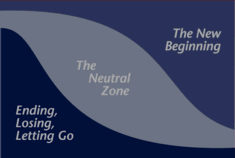[An email exchange]
Jerrie,
Our congregation is without elders. Without going into details, we are in desperate need of some teaching on church government.
I just completed my 1st year as minister of this congregation and feel I have built enough rapport with the members to begin speaking on this matter. However, I feel someone else may be more qualified than I am to speak on this subject.
Do you have any suggestions? Where do I start?
__________
I like to go slow in situations like this. I choose not to choose sides with people. If some people are doing wrong (and all are: 1 John 1:8), it is because they do not know what they are doing (Luke 23:34). If they do not know what they are doing, I surely do not know what they are doing. I try to find out what they are doing by asking questions to learn for my benefit – not to change them. If, in the process, I find out what they are doing, they may find out what they are doing and want to do something differently.
When people criticize other people in the congregation – especially leadership – I like to ask, “How long has it been that way?”. If the situation has been that way for a long time, I then like to find out, “Why do you like it that way?”. Their reply usually is, “I don’t like it that way.” But they do. They like it the way it is more that what it would take to change it.
In a group, when a situation is chronic (been that way for a long time), it is because the group has cooperated to bring it to its present condition and to keep it that way. If there is something wrong, there are biblical principles to correct a problem. It may be painful, but the solution is there. Generally, people like a dysfunctional position the way it is better than what it would take to change it. However, pain is not to be avoided. The gospel is death, burial, resurrection. People get excited about the resurrection. I do not find as much enthusiasm for crucifixion. But crucifixion must precede resurrection. In my last full-time work, I waited about two years to start directly addressing the conflict that had been in the church for at least a decade. During those two years, I was listening to tapes of the services and meetings, listening to people who were concerned, and asking questions to try to clear some of my confusion as to how they arrived at their present position.
As a preacher and a Christian, I try not to get in a hurry to go to the cross. Jesus was not crucified until He was ready – until He chose to die. I try to take a year or two in a new work to find out what is going on. Then I do not try to solve the problem. I try to enable the group to solve the group’s problem. That congregation will be there after I leave. They need to work out the solution to solve the disease that is troubling the church now and to learn to solve other problems that will surface in the future. The apostles did not solve the problems of the neglect of the Grecian widows. They led the congregation to select seven qualified men. They did and “the saying pleased the whole multitude.” It is easy to please people when they are doing what they think needs to be done (Acts 6:1-7).














